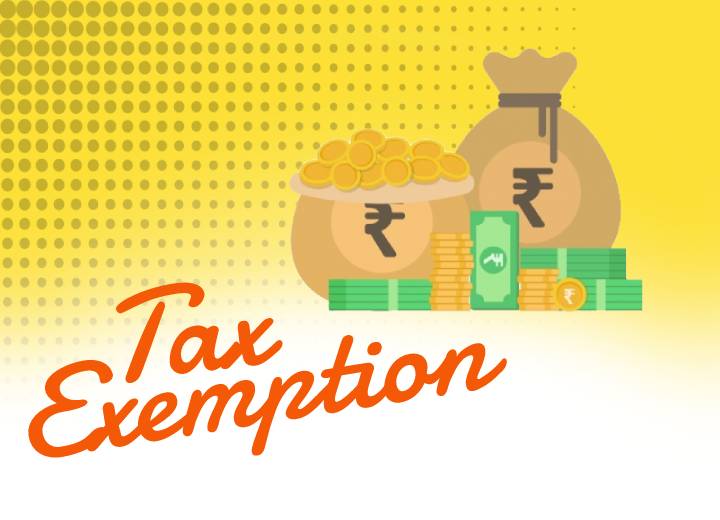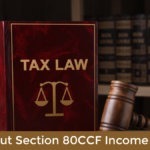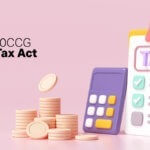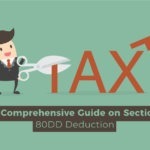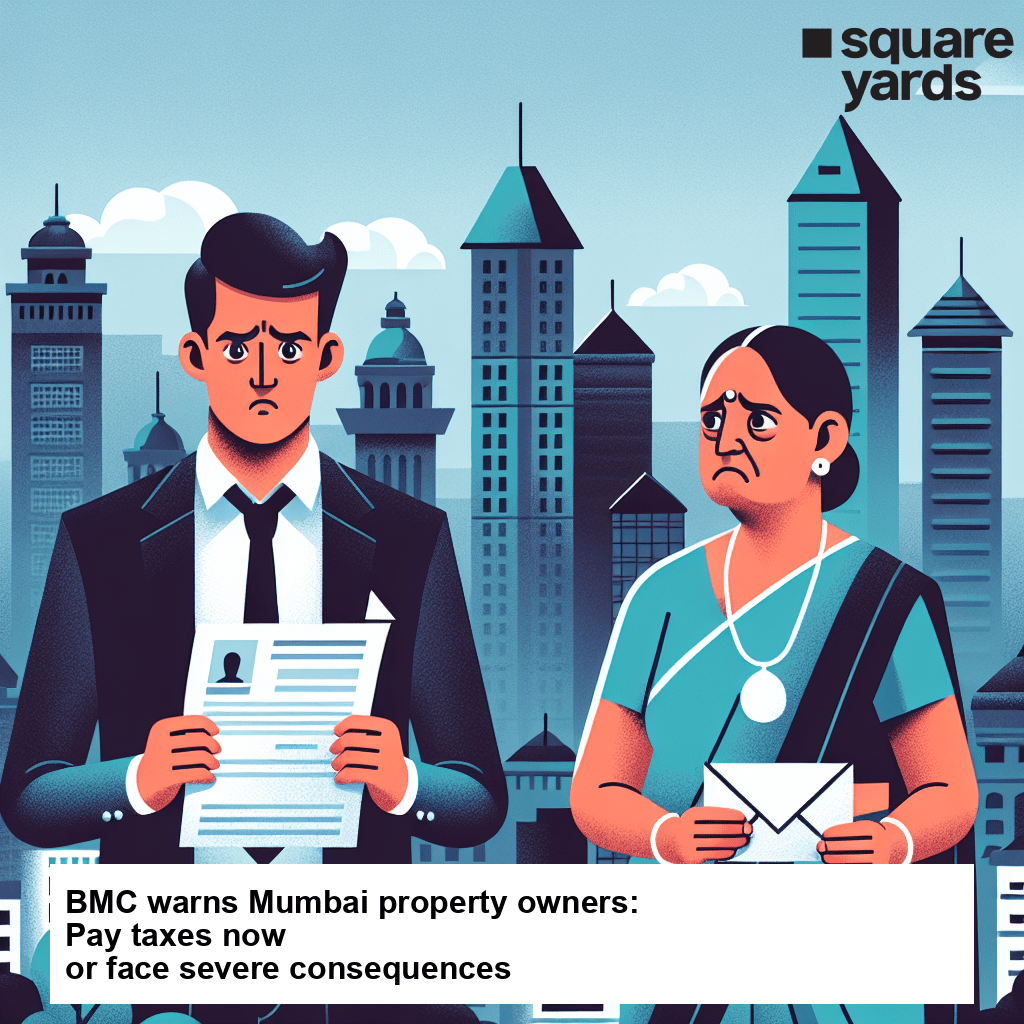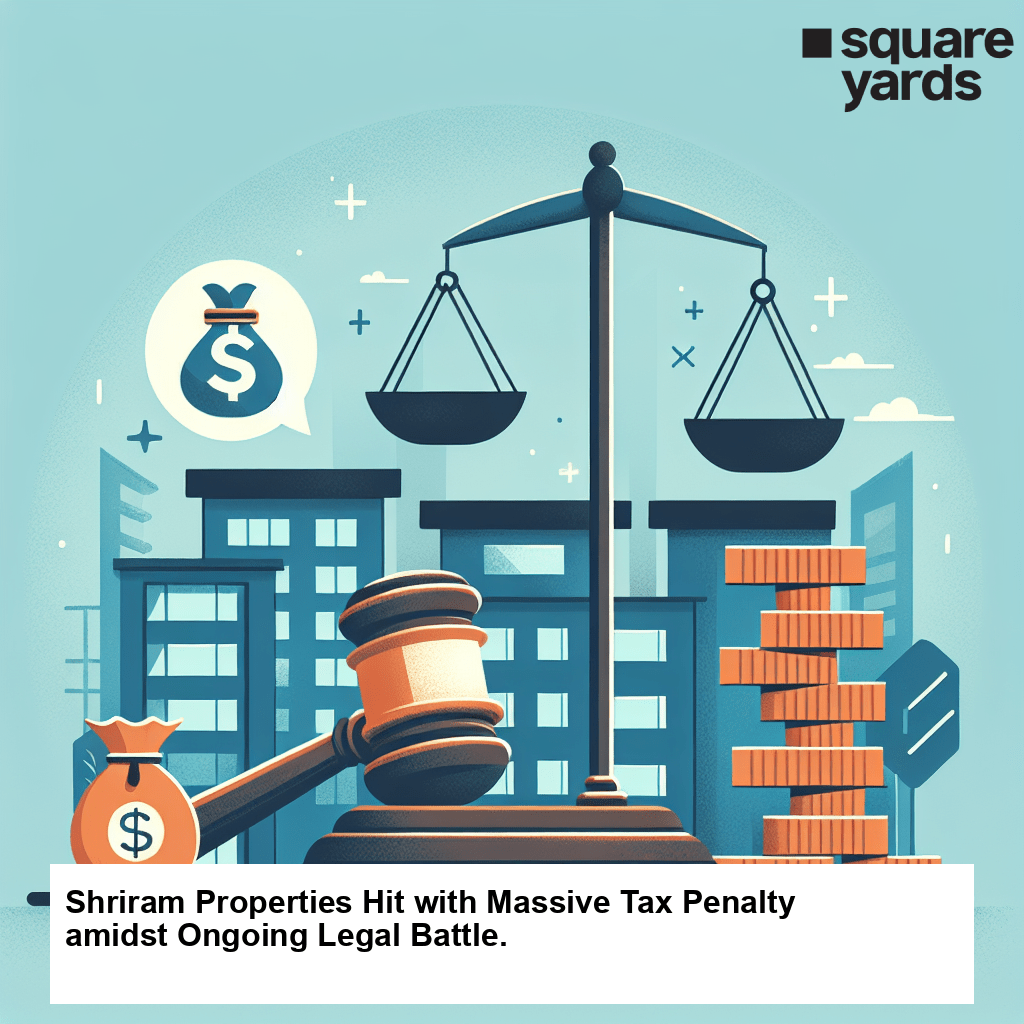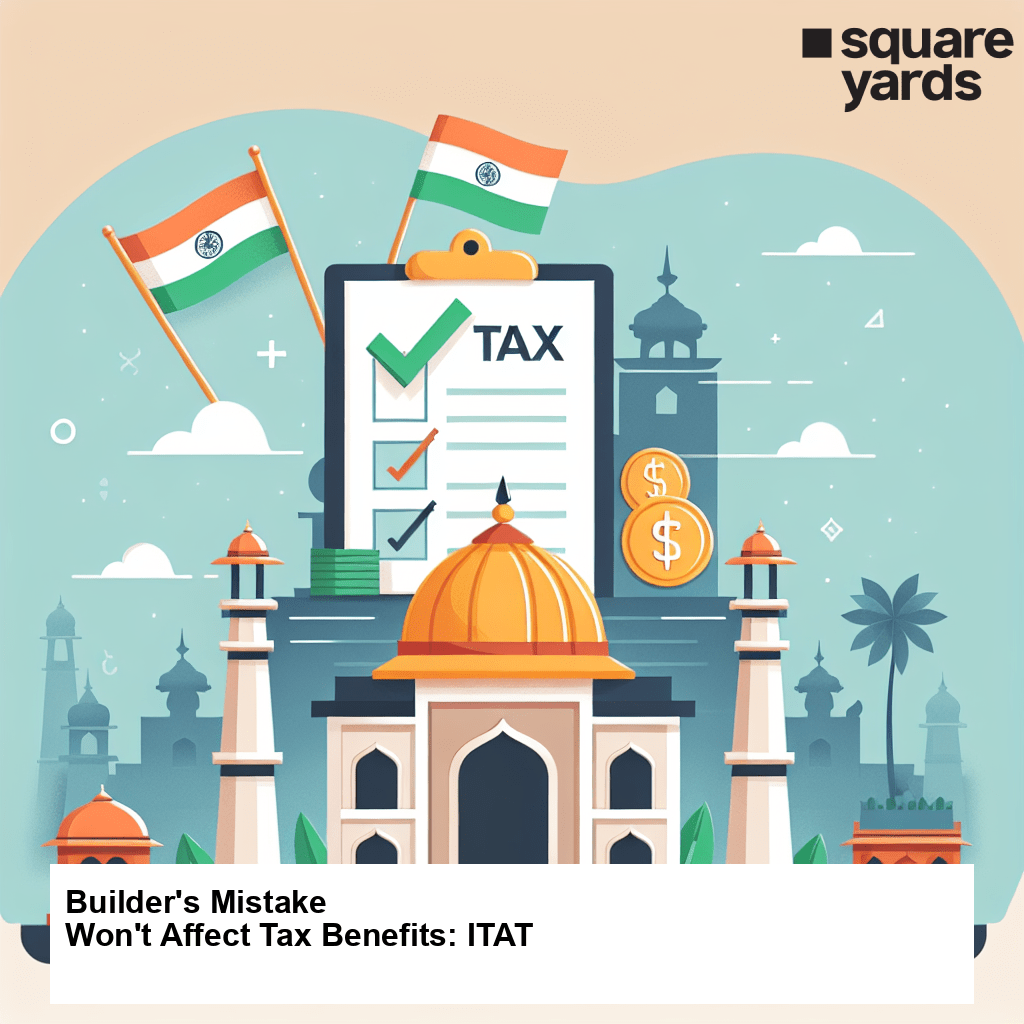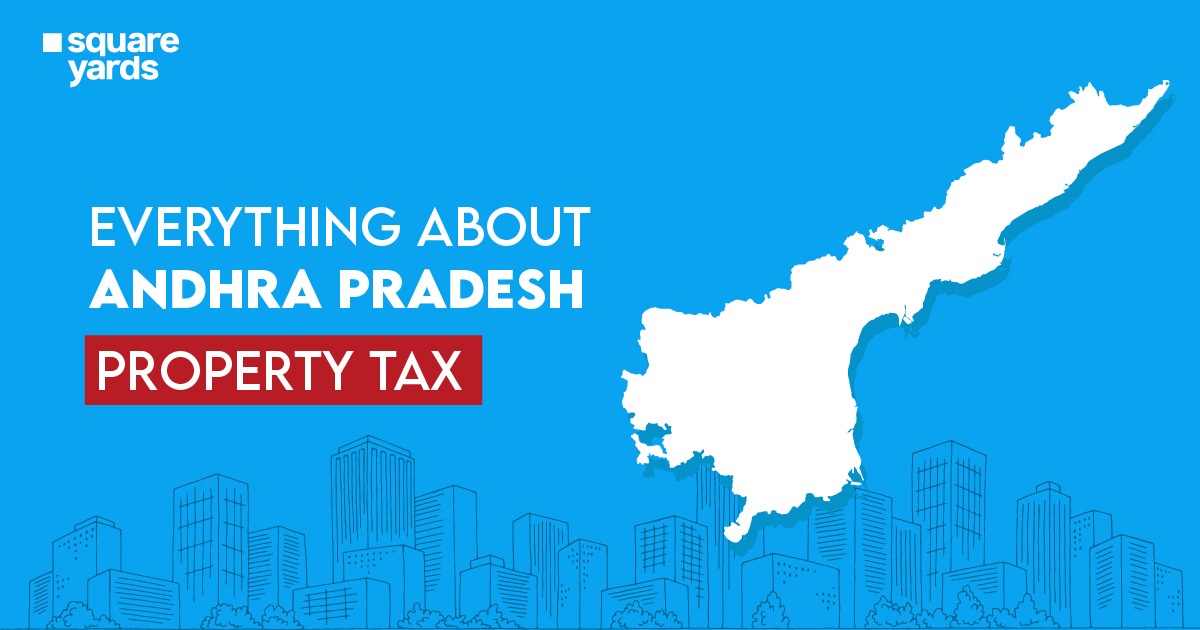As an Indian citizen, you are aware of the taxes one has to pay once they start earning. But do you know about the tax exemptions you can enjoy?
There are several tax exemption laws that help you in saving a significant part of your earnings. These tax exemptions can be on car loans, property, income, etc.
In this article, let’s get to know in detail about tax exemption, rules, eligibility, types, and more to better navigate your savings and finances.
Table of contents
- What is Tax Exemption?
- What are the Types of Tax Exemptions in India?
- What is a TDS Exemption?
- What is an HRA Exemption?
- What is Service Tax Exemption?
- What is the Tax Exemption for an Education Loan?
- What is the Tax Exemption on Car Loans?
- What is the Tax Exemption for Women?
- What is an LTA Exemption?
- What is the Capital Gains Tax Exemption?
- What are the Income Tax Exemption Limits?
- Frequently Asked Questions (FAQs)
What is Tax Exemption?
A tax exemption is a removal of the liability to pay compulsory taxes levied by the government. Any citizen of India, individual, or HUF member can avail of tax exemption. Tax exemptions help in encouraging people to pay taxes and keeping the economic values active.
According to the rules, one can get complete or partial relaxation from reduced rates for certain income, investments, services, etc. Further, it works as a rule and not as a tax absence from the particular fields. However, some people or establishments are partially or completely excluded from paying any tax.
What are the Types of Tax Exemptions in India?
Various exemptions, such as income tax and property tax, etc., can be availed by an individual depending on whether they are taxpayers with families to look after or have financial expenditures and investments.
Here you can see numerous sections that specify the tax exemptions available for Indian citizens as per the nature of their income and expenses.
| Sections | Income Nature |
| 10(1) | Income from agriculture. |
| 10(2) | Income share from the income of Hindu Undivided Family. |
| 10(2A) | Profit share from firms who have filed taxes separately. |
| 10(3) | Informal source of income which doesn’t exceed five thousand rupees. Especially for horse racings, the amount must not exceed the limit of twenty-five hundred rupees. |
| 10(10D) | Scholarship to meet education costs. |
| 10(16) | Life insurance policy receipt. |
| 10(17) | Allowances given to MPs and MLAs (MLA’s allowance is limited to six hundred rupees per month). |
| 10(17A) | Approved rewards and awards given by Central and State governments. |
| 10(26) | Income of members who belong to scheduled tribes from the Northern states of India or from Ladakh. |
| 10(26A) | Earning of any resident of Ladakh in India or outside India. |
| 10(30) | Subsidy under an approved scheme from the Tea Board. |
| 10(31) | Support under a replantation scheme from the concerned committee. |
| 10(32) | Maximum of Rs. 1500 of income of a minor mixed with an individual. |
| 10(33) | Interest received from Indian companies, the Trust Unit of India, mutual funds, or any other capital venture. |
| 10(A) | Profits received from trading free areas, hardware related to electronics, or software for about ten years. |
| 10(B) | Profits from total export-oriented enterprises, manufacturing articles, or PC software for ten years. |
| 10(C) | Profits earned from newly established enterprises in IIDC or IGC as per the North-Eastern region for ten years. |
| 10(15) (i), (iib), (iic) | Any interests, or premiums, or redemptions, received from bonds, capitals, and investment bonds. The limit for exemption will be notified. |
| 10(15)(iv)(h) | The interest given by public companies on its debentures. |
| 10( 15)(iv) (i) | Interest paid by the government on deposits contributed by the Central and State government employees or employees working in the public sector at the time of retirement as an acknowledgement scheme. |
| 10(15)(vi) | Interest earned from notified gold deposit debentures. |
| 10(15)(vii) | Interest earned from notified local authorities’ debentures. |
| 10(5) | Travel assistance for which the amount must not exceed more than the salary of the Central Government employee. |
| 10(5B) | The compensation received by technical people with specialized knowledge in certain areas. The tax must be paid by their employer. Tax exemption is limited regarding tax given by the employer for forty-eight months. |
| 10(7) | Benefits and perks offered by the government to every Indian citizen who offers their services in foreign countries. |
| 10(8) | Commission received from international governments for performing duties in India under collaborative programs of technical assistance. One can get exemption even if the income source is anywhere outside India provided that tax on the income is payable by the government. |
| 10(10) | A gratuity of death and retirement from the government and the payment made under the Gratuity Act. The amount should be according to the sections 2, 3, and 4 of the Act which is one and a half month’s salary for services completed every year. |
| 10(10A) | Exchange of funds from pension set under LIC, as per section 10(23AAB), government, statutory corporation, etc. Pension commutation from employers when gratuity is payable is one-third of the pension whereas it is half the pension, if not payable. |
| 10(10AA) | Encashing unused earned leaves from the Central and state governments and various employers whose amount is equal to 10 months’ salary totalling up to Rs.1,35,360 or less. |
| 10(10B) | Deduction in compensation in which the amount is as mentioned under section 25F(b) of the Industrial Dispute Act, 1947, or the amount as notified by the government. |
| 10(10C) | Payment (with a maximum limit of Rs.5 lakh) collected on intentional retirement or termination. |
| 10(11) | Amount collected under Provident Fund Act, 1925 and several other notified central government bonds. |
| 10(12) | Amount received from acknowledged PF funds as per rule 8 of part A from the 4th schedule. |
| 10(13) | Payments collected from an approved future retirement fund. |
| 10(13A) | Allowance for house rent wherein the least of the actual allowance is spared; in case of rent, 10% of the salary. However, for metropolitans of Mumbai, Delhi, Kolkata and Chennai, it is 50% of the salary and 40% for other cities. |
| 10(14) | Special allowances are granted to meet basic expenses required for performing duties. |
| 10(18) | Family pension of recipients of gallantry awards. |
What is a TDS Exemption?
The income tax deducted by your employer during salary transfer is considered as TDS (Tax Deducted at Source).
However, depending on your income, expenditures, and investments, you can avail of a TDS exemption wherein you can save the taxable amount via submitting your investment receipts of LIC, health insurance, PPF account, house rent, etc.
Here are the limits and TDS rates in India.
|
Details |
TDS Rates in percent |
Maximum Amount in Rupees |
|
Interest on bond, loan stock, or note |
10 |
Five Thousand |
|
Interest on fixed deposits in banks or finance companies along with 8% taxable bonds |
10 |
Ten Thousand |
|
Interest other than interest on agreements |
10 |
Five Thousand |
|
Indemnity commission for single agents |
10 |
Twenty Thousand |
|
Indemnity commission for private company agents |
20 |
Five Thousand |
|
Earnings from lottery, crosswords or other game shows |
30 |
Ten Thousand |
|
Commission earned from sale of lottery tickets |
10 |
One Thousand |
|
Earnings from horse races |
30 |
Five Thousand |
|
Payments given to the advertising agency* |
1 |
Twenty Thousand |
|
Payments given to the contractors per contracts* |
1 |
Thirty Thousand |
|
Payments given to sub-contractors* |
1 |
Thirty Thousand |
|
Commission and brokerage (not related to shares) |
10 |
Five Thousand |
|
Payments given to technical professionals |
10 |
Thirty Thousand |
|
Rent payment |
10 |
One Lakh Eighty Thousand |
|
Rent earned from machinery or equipments |
2 |
Eighty Thousand |
|
Property sale |
1 |
Fifty Lakh |
|
Survival benefits earned from insurances |
2 |
One lakh |
Note: *In case the person is not an individual or a member of HUF (Hindu Undivided Family) then the interest rate will be 2%.
What is an HRA Exemption?
HRA stands for House Rent Allowance. It is offered to all the employees so that they can meet the bare minimum standard of living. The Income Tax Act allows exemption in respect to HRA payments. The exemption is covered as per Section 10(13A) of the Income Tax Act and the 2A rule of Income Tax.
Under this rule, the rented house must not be owned by the individual in any condition. They must pay rent for that premises. HRA is deductible for individuals who have their own house. In such cases, the complete amount is taxed. Here are the minimum HRA exemption rules:
- Actual HRA must be paid to the employee.
- Rent paid (10% minus from basic salary).
- Half percent of salary if living in a metro city and 40% if living in other cities.
For Instance: Mr. Ramesh lives in Nashik and has Rs. 5000 as basic salary. Here the monthly DA is Rs. 1000 and HRA is Rs. 2000. The actual payable rent is Rs. 2000 every month. Here is how the HRA exemption will be deduced.
- Actual received HRA = 2000 * 12 = Rs. 24,000
- Rent paid as per 10% salary = (Rs.2,000 * 12) – 10% (Rs.72,000) = 24,000- 7,200 = Rs. 16,800
- And, 40% of his salary is Rs. 28,000
HRA calculation of salary:
Basic salary per month = Rs.5,000 x 12 = Rs.60,000
DA = Rs.1,000 x 12 = Rs.12,000
Whole salary for HRA calculation = Rs.60,000 + Rs.12,000 = Rs.72,000
Mr. Ramesh is allowed for the exemption of Rs. 16,800. The balance of Rs. 7,200 is included in his gross pay estimation.
What is Service Tax Exemption?
Categorized as an Indirect Tax under the Finance Act, 1994, service tax is exacted by the government on certain service transactions that are borne by the customers of those services. It is payable if the value of services provided in the financial year exceeds ten lakh rupees. The latest service tax is 14%.
However, there are numerous services exempted from service tax. Let’s see what they are.
- Services offered by the UN or other international organizations.
- Health care service for both humans and animals.
- Services from charitable foundations.
- Any religious ceremony or if the religious place is rented out.
- Any advocate or a legal firm for advocates whose turnover must be up to ten lakh rupees.
- For people on the Arbitral Tribunal.
- All new drugs which are clinically good to proceed with.
- Activities related to arts, culture, or sports. In other words, all recreational activities.
- If an acknowledged educational institute receives or provides auxiliary services which certainly include immovable property as well.
- Additional educational and beneficial services such as mid-day meals, examination-related services, transport services for students and staff.
- Any services administered under a sports council. But, the ambassador is not excluded from paying taxes.
- Sponsorship for acknowledged sports authorities.
- All services provided to local or government authorities including maintenance, repairing, commercial or non-industrial use for the public, construction, sewage management, educational facilities, etc.
- Construction services for civil infrastructures.
- Permission for using copyright temporarily.
- Services provided by the performing artists.
- Services provided by the journalists.
- Guesthouses and hotels charge less than a thousand rupees each day.
- Every restaurant without AC or bar facilities.
- Every vehicle that transports goods for up to Rs. 750 per consignment or Rs. 1500 per vehicle for transferring agricultural products.
- Renting of vehicles for GTA.
- Facilities for passengers in a means of transport in certain cases.
- Public parking is excluded but not exempted if the space for parking is on lease.
- General special schemes of insurance.
- Incubatee services. Maximum limit Rs. 50 lakh.
- Union services for trade.
- Every agent or distributor of SIM cards across the country.
- Stock exchange and sub-brokers.
- Services offered by mutual fund agents, distributors or marketing agents of lotteries.
- Housing Society or RWA services worth Rs. 5,000 for all members including medical camps.
- Any job in the agricultural field or textile industry, gemstones or cycle parts or automobile parts.
- Public telephone booths.
- Services provided by slaughterhouses.
- Services provided by ESIC.
- Sale of business, slumps, or demergers.
- Public washrooms and bathrooms.
- Services provided by government authorities.
- Exhibitions related to businesses held outside India.
- Services given to charitable organizations outside India.
- All public libraries.
- Manufacturers paying heavy excise duty; job work is excluded.
Can Small Service Providers Get Exemptions Too?
The answer is a big yes. However, there are certain tax exemption rules to follow. Here’s what they are:
- If the taxable service value is incurred in the preceding year then service tax exemption is available. However, the amount must not exceed the limit of Rs. 10 lakh.
- Exempted turnover, sale turnover, or goods manufacture must not be considered in this Rs. 10 lakh limit.
- If the turnover crosses the Rs. 10 lakh limit in a certain financial year, tax has to be paid, and there will be no exemption for the upcoming year.
- You will have to register if your turnover exceeds Rs. 9 lakh.
Situations for Service Tax Exemption: Here are some conditions wherein small service providers can get service tax exemption.
- The Central Value Added Tax (CENVAT) credit cannot be availed.
- Clubbing services are suitable.
- Services should not fall under any brand name.
- Once an individual starts paying service tax, they cannot change it during the current financial year.
- If the person getting services is liable to pay any service tax under reverse charge.
- When GTA is not necessary on the value of services less than Rs. 10 lakh.
Non-Exemptions For Secondary Services
Even when your primary services are exempted from tax, your secondary services may not be. Some of them include:
- Services provided to support the main service.
- Services of ad agencies and ad designs are taxable even though advertising itself is not.
- Hiring for equipment, labor, among others, is taxable even though public road construction is not.
- Services of subcontractors in SEZ are taxable.
What is the Tax Exemption for an Education Loan?
Under Section 80E, tax exemption is allowed if an individual has taken an educational loan. However, one has to fulfill the below-mentioned criteria to avail for it.
- One has to be an individual taxpayer.
- The deduction is allowed for the paid interest.
- The loan must be taken from an acknowledged financial institution.
- The loan is taken for higher education for oneself, spouse, children, or a student one took care of as a legal guardian.
- The interest must be paid from one’s income source subject to tax.
There is no limit set for the amount of interest one can claim a deduction for. However, the exemption is valid and available till the loan is paid for eight years or earlier. In fact, one can take a loan for higher studies both for India and foreign countries.
What is the Tax Exemption on Car Loans?
As a salaried individual, one cannot avail any tax benefit on the interest paid for the car loan. Individuals can only avail of tax exemption if the individual is self-employed, declares profit earned from the business, or purchased a car for any business purpose.
For example: Mr. Raj is a businessman and runs a grocery store. He bought a new car on loan. If he is claiming his earnings under Section 80C, he will get an exemption for the interest rate paid for the car loan.
What is the Tax Exemption for Women?
Tax exemptions for women are provided under Section 80C and 80D to 80U. The tax exemptions for women are allowed when she has:
- Public Provident Fund (PPF).
- National Savings Certificate.
- Fixed deposit of five years.
- LIC policies,
- Saving schemes related to equity links.
- Pension plans.
- EPF – Employee Provident Fund.
- Health insurance.
- Education loan.
- Contributions to research and development programs.
- Donations for political parties.
What is an LTA Exemption?
LTA (Leave Travel Allowance) is paid to the employee by the employer as monetary assistance to travel when on leave. This is tax-free under the Income Tax Act, Section 10(5). Here is how LTA exemption can be claimed:
- Whenever the employer offers an LTA to the employee to leave for any destination in India, then the original costs spent are exempt.
- LTA exemption supports traveling within India only.
- The exemption is valid only on traveling costs and not on food, beverage, stay, etc.
- The family of the employee will only include their spouse, children, parents, and siblings.
There is no limitation on the number of children, and the exemption is not available for each year. Moreover, only two trips in four years are available under the LTA exemption.
For instance: If, at present, an individual gets an LTA of Rs.10,000, then that individual can carry the amount to the next year and get a total leave travel allowance of Rs. 20,000.
However, the individual can only apply for an LTA once a year. In case of a job change, the individual gets an LTA exemption from both the current employer and the previous employer (if they haven’t used it yet).
LTA exemptions are as follows:
| By air journey |
Economy class fare by the shortest path or as per the original expense (whatever is low). |
|
By rail journey |
The first-class AC ticket fare by smallest rail route or original amount spent (whatever is low). |
| Source of origin and destination connected by rail route but opted different transport modes. |
The first-class AC rail ticket fare via shortest path or the money actually spent (whatever is low). |
|
Source of origin and destination not connected modes of transport other than rail route. |
A first-class ticket fare via the quickest route or the actual amount spent (whatever is low). |
| Source of origin and destination neither connected by rail route nor other recognized modes of transport. |
The first-class ticket fare via the smallest route (with rail) or amount spent (whatever is low). |
What is the Capital Gains Tax Exemption?
Any profit earned from the sale of a tangible asset falls under the category of income and is, therefore, taxable. The tax paid on that income is known as a capital gain. It can be levied for both a short and a long term at 15% and 10%, respectively.
However, the good news is that capital gains tax can be exempted under the following sections of the Income Tax Act. As per the following sections, any individual or HUF (Hindu Undivided Family) member can claim capital gains tax exemption and apply for a capital gain deposit scheme.
Section 54
- Any residential property with ownership of three years or more has to be sold.
- You are liable to buy a new property in the preceding year from the sale date, or it can be constructed after three years once the property is sold.
- Either the amount of investment in a new asset or capital gain will be excluded from the tax or whatever is less.
Section 54B
- Eligible assets can be sold, such as agricultural land used for growing crops at least two years before the sale.
- You can buy new land for continuing agricultural practices 2 years before the sale.
- The investment amount in new agricultural assets or the capital gain will be excluded whatever is less in amount.
Section 54EC
- All the assets that can be sold anytime are considered long-term capital assets. But the property must be owned for three years.
- You are also eligible for acquiring a bond of NHAI or REC, and that’s how you get six months for acquiring new assets.
- The exemption amount can be from investment or capital gain, or whichever is less than the other (maximum limit is Rs.50 lakh in one financial year).
Section 54F
- Other than residential property, every asset can be sold as any long-term capital asset. However, the taxpayer must not have more than one property on the transfer date.
- Before selling the property, you can either own a property in the preceding year from the date of sale or two years after the sale of an asset or after three years (if it is constructed).
- Dividing the investment amount on the new asset by the considered net sale amount and then multiplying the same with the capital gain is the amount considered for tax exemption in this case.
What are the Income Tax Exemption Limits?
For any individual below 60 years of age, the basic tax exemption limit is Rs.2.5 lakh. Additionally, for senior citizens, above or equal to the age of 60years, the exemption limit is Rs. 3 lakh. For super senior citizens above the age of 80 years, the exemption limit is Rs.3.5 lakh.
However, if your salary is between Rs.2.5 lakh and Rs. 5 lakh, 10% tax is levied irrespective of gender. For annual salaries ranging from Rs.5 lakh to Rs.10 lakh, 20% tax is levied irrespective of gender and age seniority, while 30% tax is levied on those whose salary exceeds Rs. 10 lakh.
Note: The tax rebate of two thousand rupees is calculated for individuals having an annual income of Rs. 5 lakh. A surcharge of 12% is levied upon those taxpayers who exceed Rs. 1 crore.
You May Also Read:
Income Tax Top Blogs Income Tax Other Blogs Income Tax Slabs Sales Tax Income Tax Return Service Tax Income Tax e-Filing Direct Tax Income Tax Refund Status Indirect Tax Income Tax Refund HRA – House Rent Allowance Online Tax Payment Gross Salary Income Tax Portal Self Assessment Tax
Frequently Asked Questions (FAQs)
Can I choose between the new tax regime and the old tax regime?
Yes, one has the option to pick between the old tax regime and the new tax regime.
Can I save under Section 80C of the Income Tax Act?
According to Section 80C of the Income Tax Act, an individual will be allotted a tax exemption of up to Rs. 1.5lakh. Nevertheless, there will be no exemption as per the latest new tax regime.
Are salary arrears taxable?
Yes, the salary arrears are taxable. But, you can have some relief under Section 89 of the Income Tax Act.
Are food and beverage exempted under the new tax regime?
According to the new tax regime, both food and beverage are not exempted.
Can I have the tax break if the interest has been paid on an education loan?
No, there is no tax break allowed for any interest paid on an education loan.
Give an example of a tax exemption.
Popular examples of tax exemption include exemptions for charitable institutions, property and income tax, sourdoughs, and other cross-border or multi-judiciaries situations.
What is the maximum limit for exemption?
For an individual and HUF, the exemption limit is Rs.25,000. However, for a senior citizen of sixty years or more is Rs. 30,000. The tax exemption amount is even more for super senior citizens above 80 years of age.
Can I claim tax exemption?
Yes, you can claim for tax exemption if you are expecting a refund of all federal income tax reserved.
What are some of the exceptions to income tax?
According to the Income Tax Act, 1961 under Section 80TTA, an individual can avail a tax exemption of up to Rs. 10,000, from their hard-earned income from savings account interest. This law applies to HUFs as well. However, if the income is less than Rs. 10,000, then the entire money will be applicable for a tax deduction.
Is tax exemption good?
Tax exemption lowers the burden of paying tax. Moreover, it helps you save money that you can use for other errands and, at the same time, become a responsible taxpayer. So, of course, it is a good thing.


